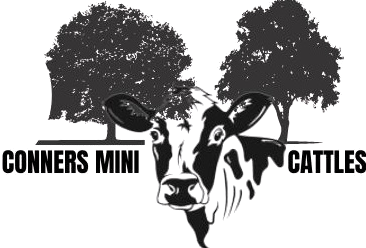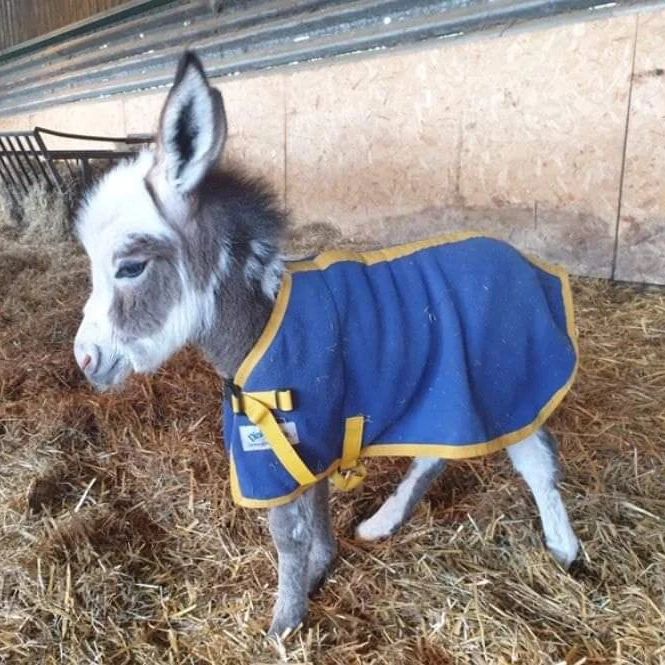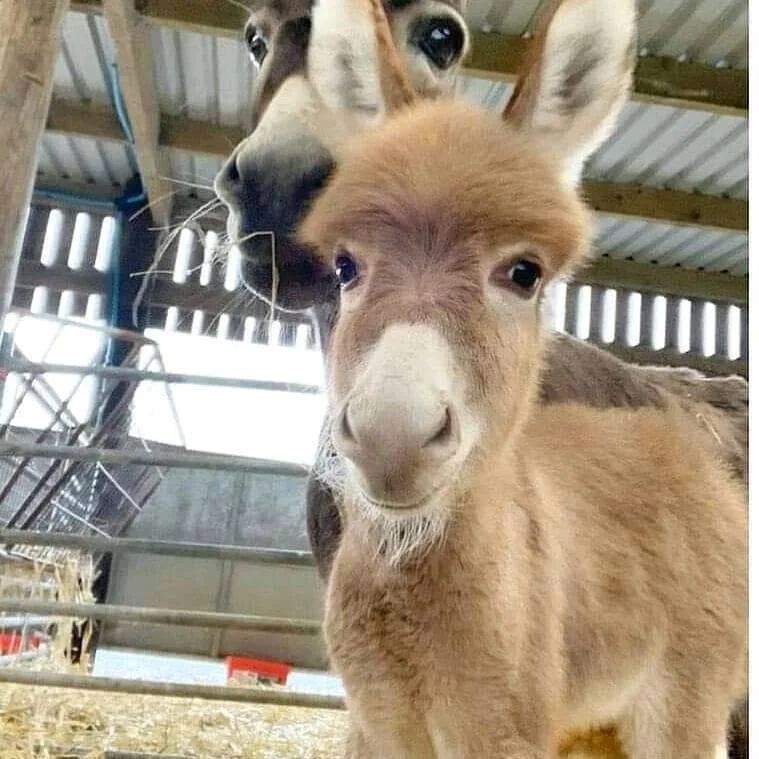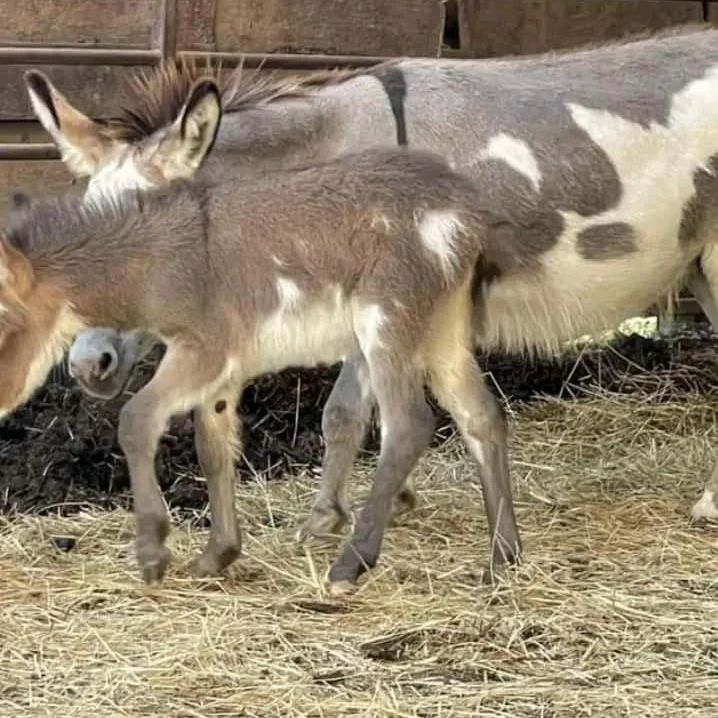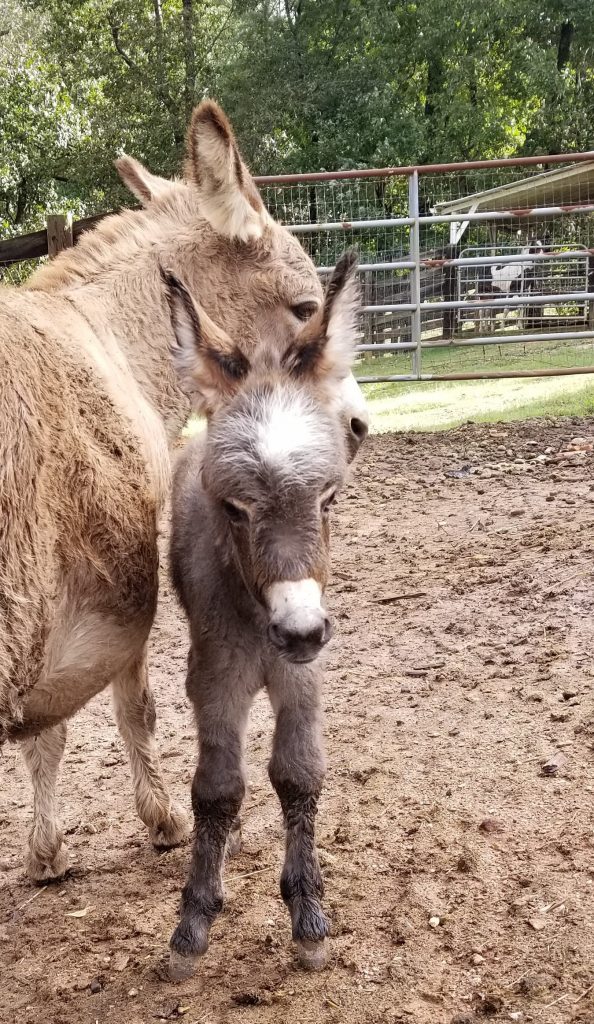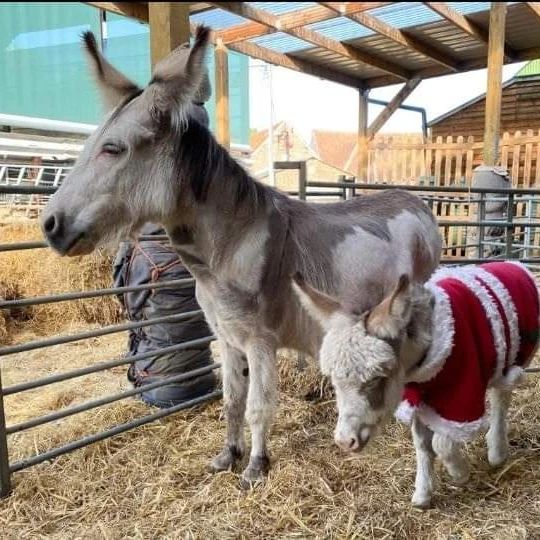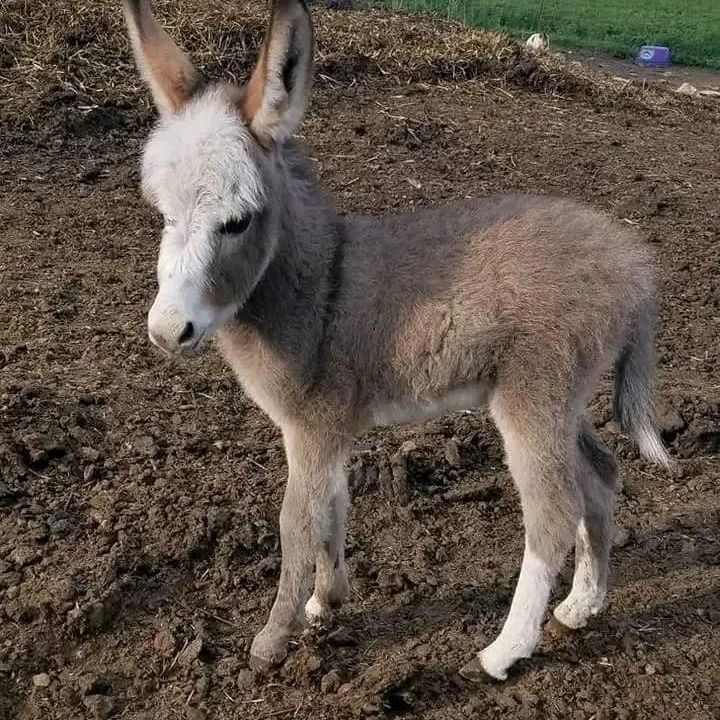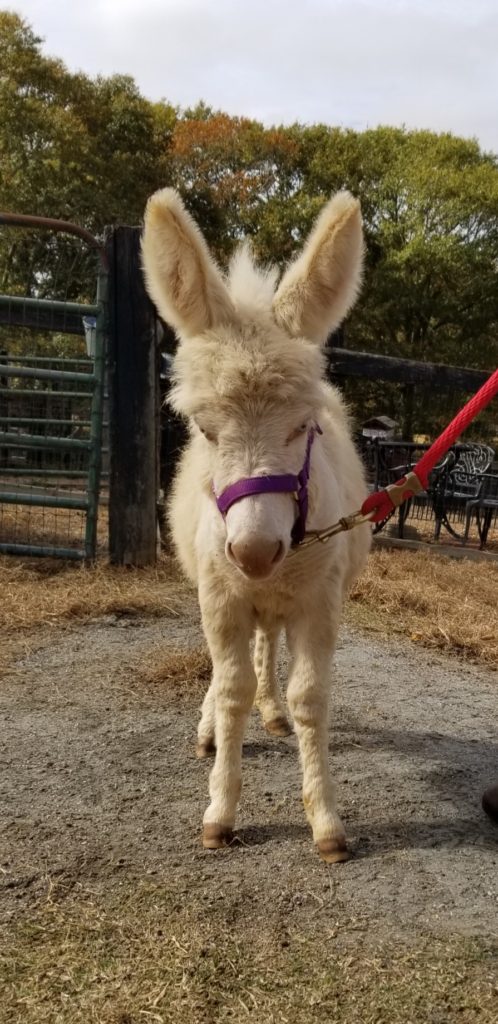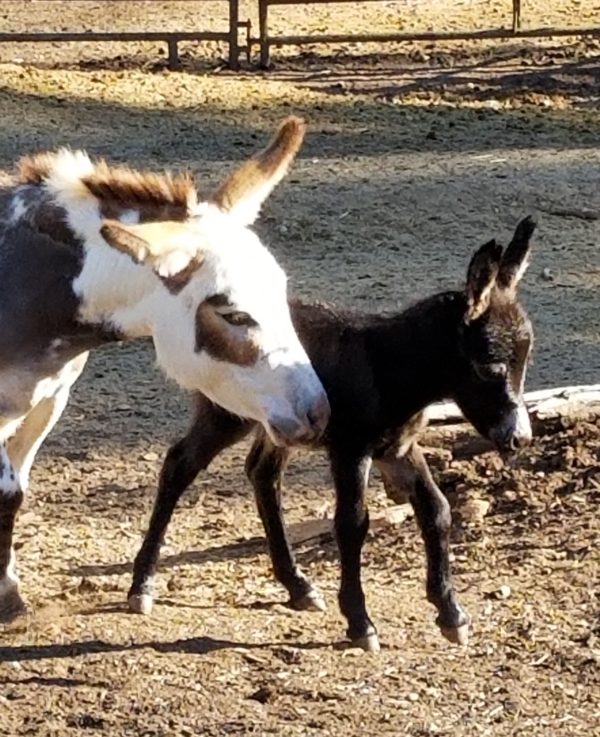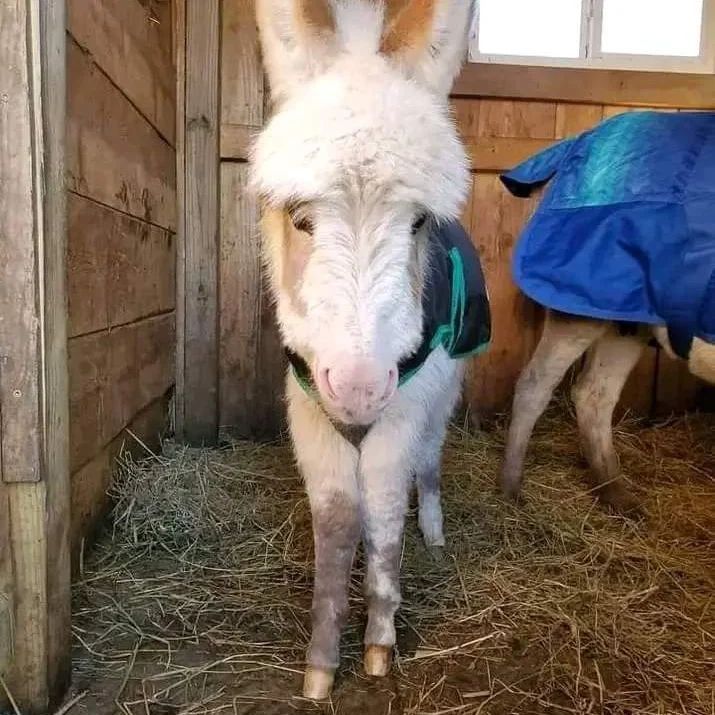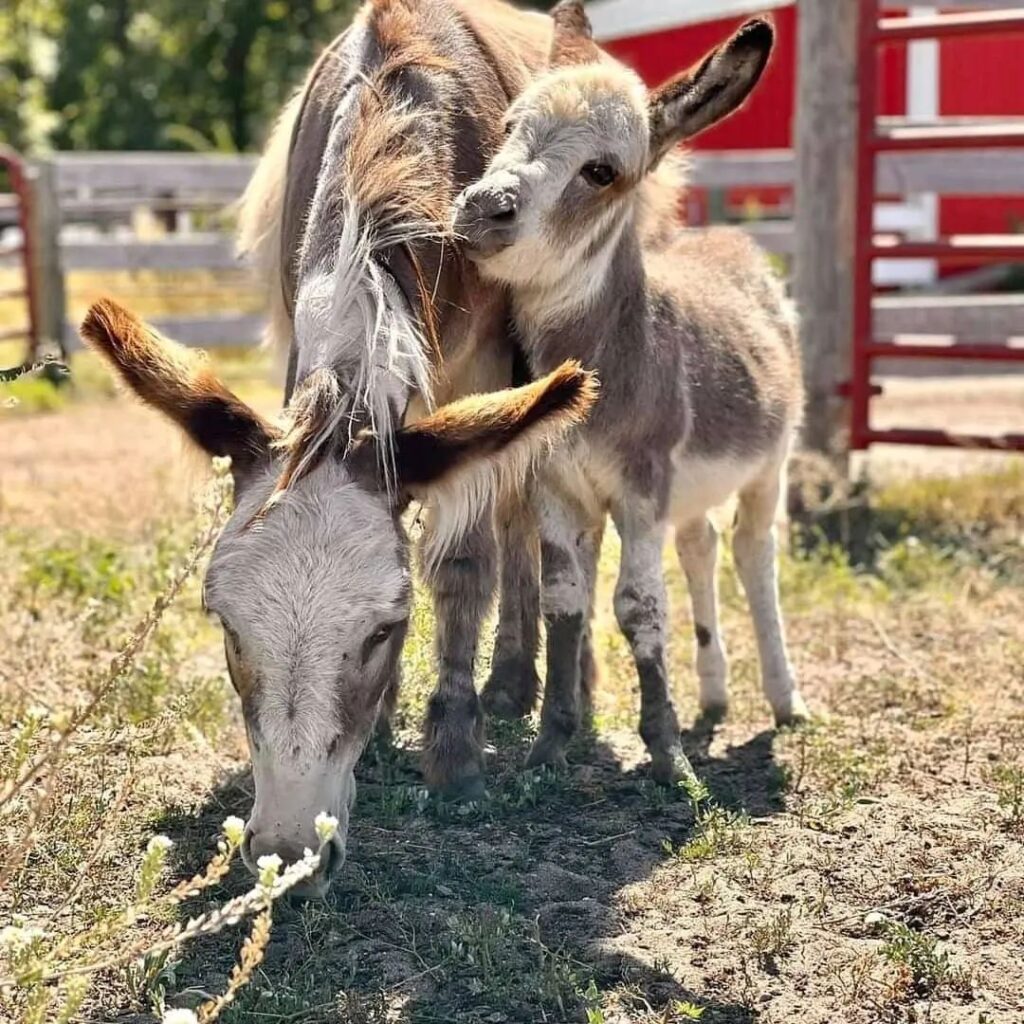
Miniature Donkeys For Sale
We are very proud of the daily handling and care given to our miniatures here at Conners Farm. We provide proper nutrition and quality veterinary care to all of our animals. Our livestock is current on vaccinations, dental checkups, hoof care, and worming. The health of our animals is very important to us, and we follow rather strict practices. We maintain a closed herd, which means we do not bring in any new animals, embryos or semen. Once an animal is sold, it may not be returned. So that we do not unintentionally introduce disease into our herds, we do not bring our animals to shows, and we do not borrow or lend animals for breeding. We prefer weanlings do not leave Conners Farm before they are 2 months of age. They need time to grow and play with other weanlings, receive discipline from their mothers, and time to change their diet gradually to eliminate the desire for mother’s milk. This also enables Conners Farm time to deworm the weanlings and give them their first vaccinations. All miniatures come with Conners Farm health papers showing up to date vaccinations, deworming schedule, and hoof trimming schedule. If you need transportation, we can arrange ground transport within the US and Canada. To other countries, we can arrange air transportation on major airlines.
ConnersFoundation was established to encourage the preservation of rare, heritage and miniature breed therapy farm animals as well as the Native and agricultural heritage connected to them through education, advocacy, and conservation.
Available Miniature Donkeys
Miniature donkeys are native to the Mediterranean islands of Sicily and Sardinia. There they have been used for over two thousand years for transport, draft work, and as a power source for moving heavy mill stones for grinding wheat. Their milk was valued as a curative and skin treatment. Poppaea, wife of Roman Emperor, Nero, was legend to have kept a large herd to be milked for her baths. Miniature donkeys first made their appearance in the United States in 1929 when a group of seven was imported by Robert Green of New York. Later, the Busch family (of Anheuser Busch) imported a second herd. An association was established in 1958 to maintain the registry. In the Mediterranean region, many of the small working donkeys are being crossed with larger breeds, making their global population perilous. The continued conservation of the breed in North America is key to their continued survival.
Miniature donkeys weigh between 200 and 450 pounds. Their height limit at maturity is 36 inches at the withers which is the last hair of the mane at the bottom of the neck. They are quite intelligent, curious, and very affectionate. They are very easy to train to pull a cart or carry a small child.
The most common color for miniature donkeys is gray-dun which consists of a gray colored body with a dark color dorsal stripe down the back and over the shoulders. This dorsal stripe is known as the “donkey’s cross” said to have been imprinted on the donkey’s back as it stood at Christ’s crucifixion. Miniature donkeys also come in variations of black/brown, white, spotted and roans. Colors other than typical gray-dun makes the donkey more exotic looking, therefore increasing their price. Miniature donkeys are members of the equine family. A cross between a donkey and a horse is called a mule, while a male horse and a female donkey produces a hinny. Male donkeys are called jacks. Female donkeys are called jennets or jenneys. It takes a female donkey up to 13 months to have a baby. Donkey foals are weaned between 3 to 4 months of age. Their life span is approximately 30 to 35 years. Miniature donkeys by nature are one of the friendliest and most affectionate animals of its type. They are very tame and gentle. They love attention. They can be easily trained to be ridden or to pull a cart or wagon singly or as a team. They can pack a moderate load of cargo and can carry up to 100 pounds. They are very cautious and slow making them wonderful therapy animals for children and adults.
